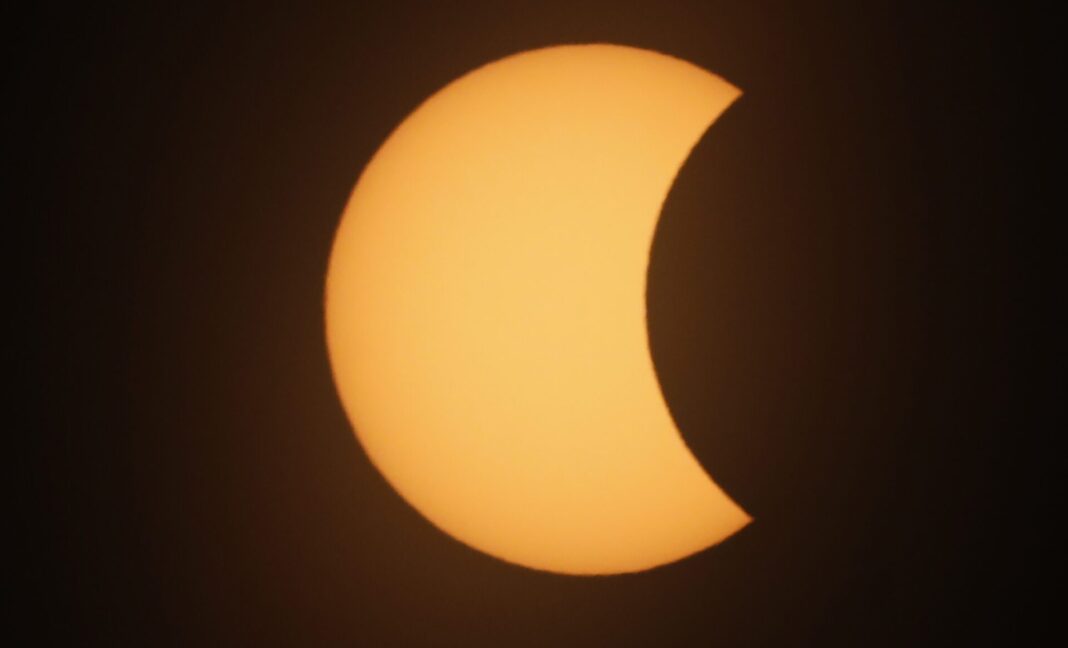BTN News: As we approach one of the most anticipated astronomical events of the decade, the excitement is building for the total solar eclipse on April 8, 2024. This rare celestial event promises to captivate millions across North America, particularly in the United States, as the moon passes directly between the Earth and the Sun, plunging parts of the continent into temporary darkness. Given that the next opportunity to witness such a phenomenon won’t come until 2044, it’s no surprise that this eclipse is generating significant buzz. However, while the visual spectacle of a total solar eclipse is undeniably breathtaking, there are crucial safety and practical considerations that must be taken into account by those planning to witness it.
One of the primary concerns surrounding the eclipse is the potential impact on mobile phone services. Experts warn that the massive influx of people to specific viewing locations could lead to network congestion, causing disruptions in mobile communication. As enthusiasts and the general public flock to areas along the eclipse’s path of totality, the demand on cellular networks is expected to surge dramatically, potentially leading to dropped calls, slow internet speeds, and difficulties in sending or receiving messages. Those planning to be in the eclipse’s path should be prepared for possible connectivity issues and consider alternative ways to stay in touch during the event.
In addition to the challenges of mobile network congestion, there’s a critical safety issue that can’t be overlooked—protecting your eyes while trying to capture the eclipse with your phone. Despite the temptation to photograph this extraordinary event using a smartphone or tablet, experts strongly advise against it, especially during the partial phases of the eclipse. The reason is simple: most mobile devices lack the necessary filters to protect both the camera and the user’s eyes from the concentrated solar rays. Attempting to take pictures without proper solar filters can result in permanent damage to your device’s camera. More alarmingly, it poses a significant risk to your eyesight. The intense sunlight can cause severe and irreversible damage to your retinas if viewed directly, even for a brief moment.
Given these dangers, organizations like NASA emphasize the importance of using professional-grade digital cameras equipped with certified solar filters to safely capture the eclipse. These specialized filters are designed to block out the harmful rays, ensuring that both the equipment and the photographer’s eyes are shielded from potential damage. By using the appropriate gear, observers can safely enjoy the experience of the eclipse and preserve the memory with stunning, high-quality images, all without compromising their safety.
As the countdown to April 8, 2024, continues, it’s essential for everyone planning to view the total solar eclipse to be mindful of these precautions. While the allure of capturing the perfect shot or staying connected during the event is strong, ensuring your safety and that of your devices should be the top priority. Remember, the next chance to witness a total solar eclipse won’t come around for another two decades—so make sure to prepare properly to fully enjoy this rare and awe-inspiring event.


